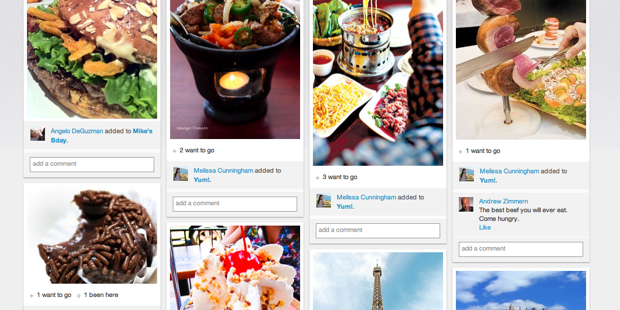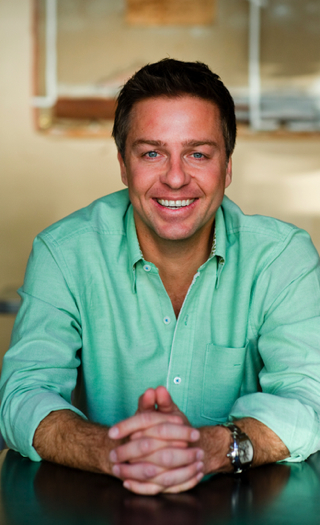Everyone likes to talk about travel, says Trippy's founder and CEO, J.R. Johnson. His site and app helps them do just that.

J.R. Johnson is the founder and CEO of Trippy, a social travel site and app. Whereas other social travel startups have focused on meeting up while abroad, or tapping locals as cheap tour guides, Trippy is focused on one thing: capitalizing on your social graph for good travel advice. True to its name, Trippy recently announced Boo, “the world’s cutest dog,” as one of its advisory board members.
FAST COMPANY: You’ve been involved in the travel space since the ‘90s. How’d your interest begin?
J.R. JOHNSON: In 1991, I was a sophomore in college. I was with a group called Semester at Sea, and we ended up stopping in India. Everyone goes to the Taj Mahal, but we ran into this guy in a hotel bar who’d just gotten back from Darjeeling. This was long before the Wes Anderson movie, and I’d never even had tea before in my life. But based on tip from this half-drunk Kiwi in Madras, we scrapped the trip to the Taj Mahal and went to Darjeeling, taking a bus and train up in the mountains, and it was almost a spiritual experience rising into the Himalayas. That was the concept I wanted to build with VirtualTourist, in 1999, to recreate the happenstance of running into this guy.
 You sold VirtualTourist to Expedia in 2008 for a reported $85 million. How’d you move on to Trippy, your new travel startup?
You sold VirtualTourist to Expedia in 2008 for a reported $85 million. How’d you move on to Trippy, your new travel startup?
Our three-year non-compete expired July 1, 2011. We looked around at the travel landscape and thought, “There’s still a lot of opportunity here. Let’s build the killer social product for travel.” We went back to the drawing boards.
Was emerging from a multi-year non-compete like coming out from a bomb shelter?
[Laughs.] It kind of was. In some aspects, not at all, but in others, yeah. We weren’t necessarily in a bomb shelter, we were still building and creating, just not in travel.
So how does Trippy work?
It’s how most of us travel. We want to know what our friends say, and we trust that over any anonymous user-generated content. I don’t want to look through 300 hotels. I want my friends to say, “Here are the two or three hotels to look at.” People love talking about travel: It’s the lowest conversational denominator. In a plane, you can strike up a conversation with the person next to you about where he’s been, where he’s going. It’s very social and very collaborative. Also, there’s a lot of intelligence already built into your social graph. You know your snobby rich friends: If they say, “This is the nicest hotel,” then this really is the nicest hotel--and it’s probably out of your price range. But if your backpacker friend says, “This place is too snobby,” it might be okay for you. The cool part is, when you take that trip, with the app, everything is right there mapped out for you.
So the app becomes an itinerary?
You can organize the recommendations of your friends into days on the trip, and then you have that all right there with you in the app--addresses, phone numbers, and so on. You can upload photos when you’re going through, and those go right back to the people who helped you plan the trip. That’s the thank-you: “Here’s a photo of me taking you up on your idea.” We call that “helper joy.”
[youtube 8-juD9ftXgg]
Doesn’t the Trippy experience go against the spirit of your encounter with the Kiwi, which was about spontaneity and abandoning set plans?
But there was something similar in that the person was extremely relevant to me, and very trustworthy. He was relevant because he’d done everything we were thinking about doing. And he wasn’t promoting his bed and breakfast in Darjeeling; he was just sharing because he wanted to share.
You launched Trippy late last year. Have you had time to unwind, take a long vacation, and try out your own product--in India or elsewhere?
No, God, I wish! I hope to take a long extended trip like that, but I’m not sure I will anytime soon, since I have a 14-month-old daughter now. Those trips might just be in the past now.
It must be bittersweet to make a product like Trippy, but not be able to enjoy it yourself.
You don’t need to rub it in.
This interview has been condensed and edited.
For more from the Fast Talk interview series, click here. Know someone who'd make a good Fast Talk subject? Mention it to David Zax.
Follow Fast Company on Twitter.